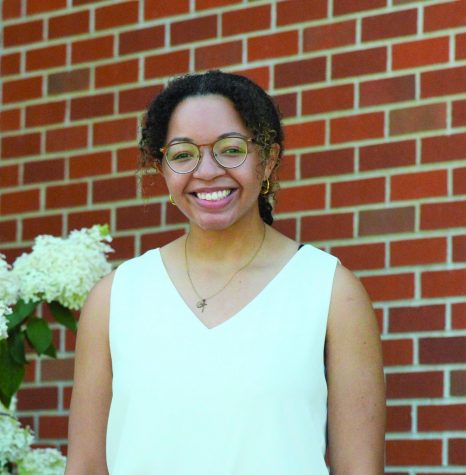Language learning, a tool for life
January 13, 2021
Whether it’s for career choice, communication or culture, the reasons to learn a foreign language are endless.
South Dakota State University offers a variety of language courses to students, and even if your degree doesn’t necessitate one of these to graduate, the pros of taking one far outweigh the cons.
Dr. Marie-Pierre Baggett, a French professor at SDSU, says that when it comes to learning another language, “for diversity—it’s essential.”
She also says it’s a way to share perspectives, gain greater cultural competence and create new and stronger relationships with others.
Not only does knowledge of a foreign language look good on a resume and make someone more marketable, but it also comes with many psychological benefits.
One of the benefits is increased aptitude for language learning, something SDSU junior Valeska Momotic can attest to. She is fluent in Spanish and English and is now majoring in French and Global Studies.
“Once you study a language,” Momotic said, “it comes with so much more than just being able to speak it. You wrap yourself in this idea of an entirely different culture … and there’s a lot you can learn from it.”
From 2010 to 2015, the demand for bilingual workers increased by over 260%, according to data from the New American Economy. Four out of five new jobs in the United States are created as a result of foreign trade, according to Leonardo De Valoes, a professor at Trinity Washington University.
There are several ways to learn a language outside a classroom setting. The most obvious way is by immersing yourself in the language and culture, which is often the best thing you can do for fluency because it forces you to speak, according to Briana Litz, SDSU study abroad advisor.
Studying abroad is a common way to achieve proficiency, but no matter what, it’s important to practice your target language on a daily basis.
Anyone can study abroad no matter their language proficiency. Students will often take an introductory level language course during their program so they can have a fuller cultural experience.
“Locals appreciate you trying to speak the language,” Litz said. “That’s really important.”
There are also volunteer programs available for students who don’t need the credit, and some opportunities include helping at a local nonprofit or teaching English to elementary children.
Another common option for students is internships abroad in their field of choice. SDSU offers over 600 programs between 75 countries to choose from. Scholarships are also available.























